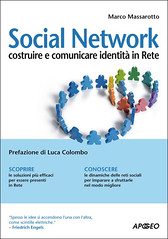| Image via Wikipedia |
- Alters cognitive and psychomotor skills necessary to drive
| Image via Wikipedia |
In the fight against alcohol before taking the wheel, several studies point to anotherworkhorse: the drug and, in particular cannabis. According to the latest study published in 'British Medical Journal (BMJ), "the cannabis use doubles the risk of a traffic accident", as they say the authors of Dalhousie University (Canada).
A fact to consider after the last report published by the European Monitoring Centrefor Drugs and Drug Addiction, is that states that one in five European adults haveever tried cannabis and, in the case of Spain, 19, 4% of youth aged 15 to 34 years has ever used these drugs in 2011 (only behind the Czech Republic and Italy).
"Cannabis is the most widely used illicit substance worldwide and recent statistics show that far from going down, there is a significant increase in consumption," said Mark Asbridge, one of the authors of the paper published in 'British Medical Journal."But the figures show more. If cannabis is consumed before driving a motor vehicle crash risk doubles and also there is a significantly greater increase of collision if the driver is under 35 years," he adds.Serious crashes ... and many deaths
To reach these results, the team reviewed nine previous studies Asbridge, and a totalof 49,500 cases closely-related to the danger of collision after consuming this substance. Analyzing toxicological studies had been made to the injured, they sawthat cannabis was to blame for psychomotor and cognitive tasks of drivers were affected.
"The result was clear: cannabis increased traffic collisions doubling the chances of a crash, many with serious if not fatal results. And the problem is that it is one of the most consumed substances, especially among young people", explains Asbridge.
This conclusion holds in the line of studies on alcohol and drugs are made in theEuropean Union. In a study in Spain provided by the DGT (presence of alcohol, drugs and medicines in Spanish drivers) shows that 11% of Spanish has ever driven under the influence of drugs, with cannabis and cocaine the 'queens' of this consumption.
As stated in the study, "in 2010, 12.51% of road deaths had consumed some type of drug and you used the most stands out cannabis."






